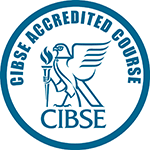
Higher/Degree Apprenticeship Building Services Design Engineer
BEng(Hons) Building Services Engineering
Page last updated 1 March 2024
Introduction
Study our Building Services Design Engineer apprenticeship to gain a BEng(Hons) Building Services Engineering degree accredited by the Chartered Institution of Building Services Engineers (CIBSE). You'll benefit from industry standard facilities, specialist software, hands-on lab activities.
Why study for a Building Services Design Engineer apprenticeship?
Our Building Services Design Engineer apprenticeship (Level 6) offers you the chance to gain a university-level degree while you work in your current role. You'll develop the skills and knowledge you need to effectively manage projects that maintain and enhance the quality of the environment and community.
Working alongside other construction professionals, Building Services Design Engineers manage teams of engineers and technicians to design the services found in buildings and infrastructure projects - from heating and ventilation systems to communications and building transportation.
Why UWE Bristol?
The Building Services Design Engineer apprenticeship not only meets all the core requirements of the accrediting body, but also delivers leading-edge teaching. This includes areas such as energy simulations, sustainability, performance analysis and assessment of the impact of user behaviour on system design.
You'll learn from industry-experienced tutors and practising professionals, who incorporate up-to-the-minute ideas from their own research projects into their tutorials. Later on in your apprenticeship, you'll be able to specialise in one specific aspect of the profession, allowing you to follow your professional interests.
You'll gain hands-on experience through lab activities and field trips, and benefit from a varied and multi-layered learning environment. You'll also have access to a range of design software and industry-standard facilities, such as our environmental physics lab, construction material lab and lighting lab.
Benefits to your employer
This apprenticeship aims to produce competent leaders and critical thinkers who can be flexible, innovative and successful in the face of a changing industry. And because you'll continue to contribute to your company while you study, your workplace will immediately benefit from your enhanced learning and confidence.
Taught by experienced professionals, you'll develop fundamental skills applicable to your organisation, relevant to heating, ventilation, and air conditioning (HVAC); electrical and public health services; and building physics. You'll learn to select appropriate services solutions, perform sizing calculations, evaluate performance and critically analyse a range of building engineering services.
You'll develop an advanced overview of the building development process, including its legal, economic and management aspects. You'll gain insight into the driving forces changing the industry such as Building Information Modelling (BIM), sustainability, performance evaluation and digital design.
Careers
This apprenticeship will support your development in the workplace and progress your journey to achieving chartered status. You'll also understand the career landscape in your sector and plan for your longer-term ambitions. Our award-winning Careers Service is on hand to give you independent advice and guidance at any point in your studies.
Course details
Content
This apprenticeship is delivered by a day-release format, meaning you'll spend one day per week in class for 24 weeks per academic year.
Your content includes introductions to and advanced design strategies and calculations covering the breadth of services engineering. These include Mechanical, Electrical, Public Health, Acoustics, Power Distribution, Security, Fire, IT, Refrigeration, Lifts, BMS and Intelligent Buildings.
You'll also cover passive design techniques to assess whole-building sustainability and use dynamic thermal simulation computer software to assess performance. Construction law and procurement are also part of the course.
Scheduled assessments will take place over an additional six weeks. Most of the 16 modules will have written assessment, plus either an exam or a presentation. There'll be an individual research dissertation and final year design project.
Read more about the approved Building Services Design Engineer Standard on the GOV.UK website.
Features
Professional accreditation
On successful completion of our Building Services Design Engineer apprenticeship, you'll graduate with a BEng(Hons) Building Services Engineering degree (Level 6).
This apprenticeship is accredited by the Chartered Institution of Building Services Engineers (CIBSE) as a qualifying first degree on the way to Chartered Engineer status.
You'll also have applied for registration with the Engineering Council as an Incorporated Engineer (IEng). This is a mandatory part of the End-Point Assessment.
Life
Health and Wellbeing
We provide support in the way you need it.
Bristol
A stunning city for student living with all the qualities to make you want to stay.
Sports, societies and activities
There is more to your experience here than study. Choose to make the most of it and try new things.
Sustainability
It is embedded in our culture, teaching and research.
Campus and facilities
Discover our campuses and the wealth of facilities provided for our students.
Entry
Typical offers
- Tariff points: 112
- GCSE: GCSE: Grade C/4 or above in English and Mathematics, or equivalent (we accept Functional Skills Level 2 in English and Maths).
- A-level subjects: Grade C or above in Mathematics plus a pass in one of the following subjects: Biology; Chemistry; Computing/Computer Science; Design and Technology; Electronics; Engineering; ICT; Further Mathematics; Music Technology; Physics; Statistics. Mathematics requirement can also be met by the Cambridge Pre-U Mathematics at Merit 3. Points from A-level General Studies and AS-level subjects (not taken onto full A-level) can be included towards overall tariff. You must have a minimum of two A-levels.
- EDEXCEL (BTEC) Diploma: One of the following BTEC Diplomas: Aeronautical Engineering; Applied Science; Construction and the Built Environment; Electrical/Electronic Engineering; Engineering; Land-based Technology; Manufacturing Engineering; Mechanical Engineering; or Operations and Maintenance Engineering. Must include Merit in one of the following units: Further Engineering Mathematics or Further Mathematics for Construction. Please list the units that you are taking in your application.
- Access: Achievement of the HE Diploma; to include 30 Level 3 credits at Merit including 15 in Mathematics and 15 in another science or technology subject. Please list the units that you are taking in your application.
- Baccalaureate IB: To include a minimum grade of 5 in higher level Mathematics and a pass at higher level in one of the following subjects: Biology, Chemistry, Computer Science, Design Technology, Physics, Environmental Systems and Societies.
- Irish Highers: H2 in Mathematics plus a pass in one of the following subjects: Biology; Chemistry; Engineering; Physics; Technology.
- T Levels: Grade C in A-Level Mathematics, in addition to your T Level qualification.
Entry requirements
Accredited Learning
If you have a Higher National Certificate (HNC), Higher National Diploma (HND) or Foundation Degree in a closely related subject, we may be able to credit you with some of the modules in our course and potentially reduce your course duration. In your application, please give full details of all your qualifications (including modules and units).
ESFA eligibility requirements
To study an apprenticeship, you need to:
- be aged 16 years or over
- be an EEA citizen (with Right to Work in the UK) and not be in any other kind of full-time education (including being enrolled on any other apprenticeship programme)
- be employed (for at least the full planned duration of your apprenticeship) in a role that is linked to the appropriate industry for the apprenticeship training
- receive at least legal minimum wage for apprentices (wages vary depending on experience, employer and level or type of apprenticeship)
- commit to at least 6 hours per week of apprenticeship training during your normal working hours
- have support from your employer, including a mentor/line manager. Your employer is also responsible for funding your apprenticeship.
More information about eligibility for apprenticeship funding is available on the GOV.UK website.
How to apply
Employed
If you’re interested in applying and have the support from your employer, speak to your line manager and/or HR team in the first instance for approval. Your employer will contact us so we can send you an application link.
Unemployed
If you’re not employed, you can use the following tools to find an apprenticeship vacancy with an employer:
- Employer’s careers page
- Find an Apprenticeship
- UCAS Apprenticeship search
For more guidance on higher and degree apprenticeship applications.
For further information
For course-specific enquiries, please contact the Programme Leader.
For all other enquiries, please email our Apprenticeship Hub apprenticeships@uwe.ac.uk or call +44 (0)117 32 84888.
For further information about Higher and Degree Apprenticeships.
